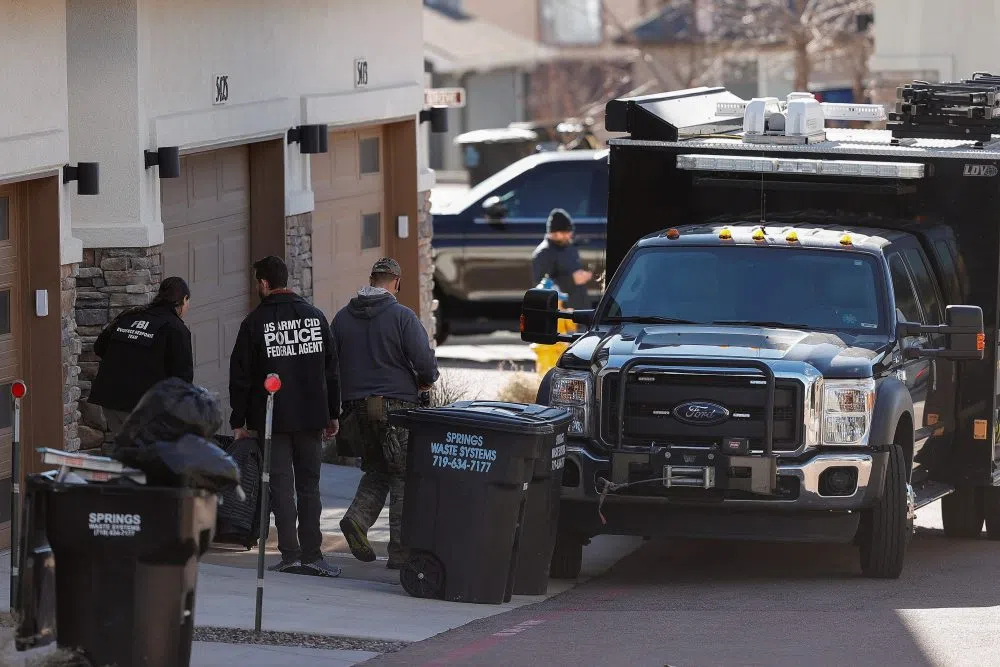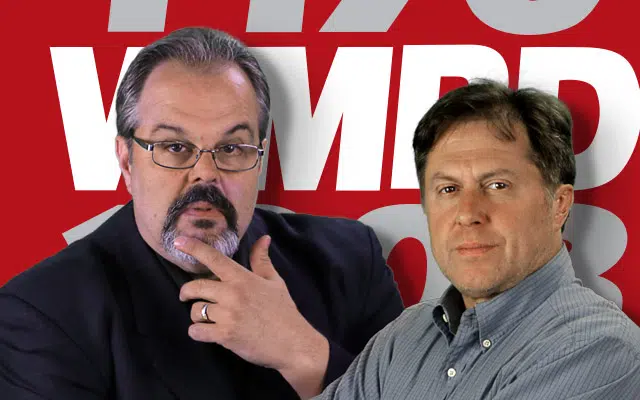LAS VEGAS (Reuters) -Law enforcement officials named a U.S. Army soldier from Colorado as the likely person inside a Tesla Cybertruck that exploded outside the Trump International Hotel in Las Vegas on Wednesday, leaving the driver dead and seven people with minor injuries.
The FBI on Thursday said it had so far found no definitive link between the New Year’s Day New Orleans truck attack that killed 15 people and the Cybertruck explosion.
Authorities believe Matthew Livelsberger, a 37-year-old active-duty Army soldier from Colorado Springs, was inside the vehicle when it exploded and that he acted alone. The body was burned beyond recognition and investigators were awaiting confirmation from DNA evidence and medical records.
The person in the Cybertruck sustained a self-inflicted gunshot wound to the head immediately before the explosives in the vehicle were detonated, Las Vegas Metropolitan Police Department Sheriff Kevin McMahill said at a news conference on Thursday. A handgun was found at his feet.
It was one of two semi-automatic handguns found in the Cybertruck, both of which were lawfully purchased by Livelsberger on Dec. 30. Law enforcement also found military identification, a passport, an iPhone and credit cards in the truck.
Livelsberger was assigned to the Army Special Operations Command and was on approved leave at the time of his death, an Army official said. The Army Special Operations Command would not comment on an ongoing investigation, a spokesperson said.
A U.S. official told Reuters that Livelsberger had been awarded a Bronze Star for valor and an Army commendation for valor, along with a Combat Infantryman Badge. He completed five combat deployments to Afghanistan, the official said.
Livelsberger does not appear to have had a criminal record, McMahill said. He has been linked to addresses in Colorado Springs since 2013, and local news channel FOX21 reported law enforcement officials were at a town home complex there on Wednesday night. The FBI’s Denver office on Thursday said a search of a residential address in Colorado Springs by federal and local authorities was related to the Las Vegas explosion.
Videos taken by witnesses inside and outside the Las Vegas hotel showed the Cybertruck exploding and flames pouring out of it, as it sat in front of the hotel at around 8:40 a.m. local time (1640 GMT) on Wednesday.
A Trump spokesperson did not return a request for comment on Thursday. The president-elect’s son, Eric Trump, praised Las Vegas fire and law enforcement officials on Wednesday for their quick action following the explosion.
‘LOTS OF QUESTIONS’
The Trump International Hotel in Las Vegas is part of the Trump Organization, the company of President-elect Donald Trump, who will return to the White House on Jan. 20. Tesla CEO Elon Musk was a key backer of Trump in his 2024 presidential campaign and is also an adviser to the incoming president.
“It’s not lost on us that it’s in front of the Trump building, that it’s a Tesla vehicle, but we don’t have information at this point that definitively tells us or suggests it was because of this particular ideology, or… any of the reasoning behind it,” McMahill said.
Police said Livelsberger rented the Cybertruck in Denver on Dec. 28 and made stops in several cities including Albuquerque, New Mexico, and Flagstaff, Arizona, before arriving in Las Vegas early on Wednesday.
The truck drove along the city’s hotel- and casino-lined Strip until it reached the Trump hotel, where it drove through and later returned to the valet area. The Trump hotel was evacuated after the explosion and most guests were moved to another hotel.
“Detectives found gasoline canisters and large firework mortars in the bed of the truck,” a police statement said.
Schwartz, the FBI special agent in charge, said it was not yet clear whether the blast was an act of terrorism.
Musk, in a post on X, said, “We have now confirmed that the explosion was caused by very large fireworks and/or a bomb carried in the bed of the rented Cybertruck and is unrelated to the vehicle itself.”
Both the Cybertruck and the vehicle used in the New Orleans attack had been rented through car-sharing service Turo, McMahill said.
A Turo spokesperson said the company did not believe either of the renters of the vehicles involved had a criminal background that would have identified them as a security threat.
(Reporting by Ronda Churchill in Las Vegas, Harshita Meenaktshi in Bengaluru, Hannah Lang and Karen Brettell in New York, Rich McKay in Atlanta and David Shepardson, Jasper Ward and Ismail Shakil in Washington; Additional reporting by Devika Nair in Bengaluru; Editing by Scott Malone, Donna Bryson, Nick Zieminski and Daniel Wallis)







Comments